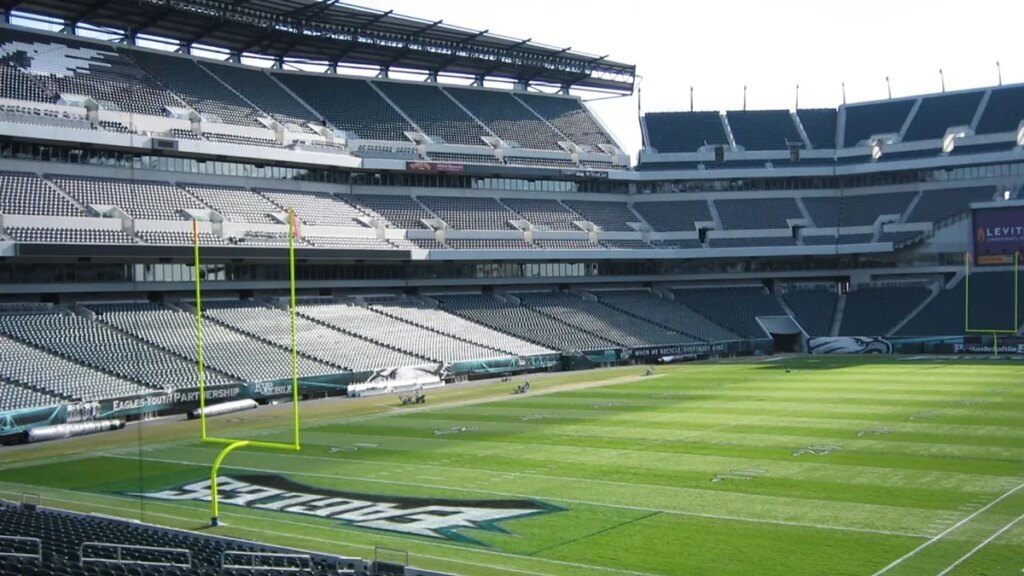Philadelphia Eagles fans may face significant postgame transportation challenges following the team’s season opener against the Dallas Cowboys on September 4.
While Lincoln Financial Field is expected to host approximately 70,000 spectators, the city’s transit system may struggle to accommodate the large crowd.
The Southeastern Pennsylvania Transportation Authority (SEPTA) typically deploys 10 additional trains after Eagles games, providing service for roughly 14,000 to 17,000 fans.
For the season opener, however, the agency will operate only four extra trains, limiting capacity to approximately 4,000 passengers.
The remaining attendees are likely to rely on rideshare services, taxis, or walking to reach their destinations, potentially causing widespread congestion.
SEPTA General Manager Scott Sauer acknowledged the situation at a recent state hearing, stating, “The opener on September 4th… will be chaotic.”
His comments reflect the agency’s operational constraints and the challenges of managing postgame transportation for a high-profile matchup.
Fans have been left frustrated
The news has drawn attention and criticism from fans on social media, many of whom expressed frustration over the limited service.
Posts highlighted concerns about safety and the potential for long delays, with some users criticizing SEPTA’s management and efficiency.
The reaction underscores the growing expectation among spectators for reliable and accessible public transportation during major sporting events.
The transportation issue coincides with other challenges facing the Eagles this season. The team recently lost a promising young receiver for the year, adding pressure to an offense already under scrutiny before the season begins.
Fans, while eager to see the team’s performance, must now also consider logistical obstacles when planning their attendance.
SEPTA’s $213 million budget shortfall complicates the situation, indicating that postgame congestion may not be limited to the opener.
Sauer warned that future high-profile events, including potential playoff games and 2026 World Cup matches at Lincoln Financial Field, may face similar service limitations.
The city is scheduled to host six World Cup games, including a July 4 knockout match, heightening the need for effective crowd management strategies.
Urban planners and transportation experts emphasize the importance of contingency planning for events of this scale.
Potential measures include expanded bus routes, coordinated rideshare services, and improved pedestrian pathways to alleviate pressure on limited train service.
However, with tens of thousands of attendees, logistical challenges remain substantial.
Despite these obstacles, enthusiasm for the Eagles‘ season remains strong. Fans are eager to see how offseason acquisitions and roster changes impact the team’s performance.
However, postgame experiences will require patience and planning, as many supporters face limited transit options and crowded streets.
The situation underscores the intersection of major sporting events and urban infrastructure. While Lincoln Financial Field can accommodate large crowds, ensuring efficient transportation remains a critical factor for fan safety and convenience.
Officials and attendees will need to prepare for the logistical demands of the season opener to ensure that excitement on the field is not overshadowed by difficulties leaving the stadium.
Read the full article here

